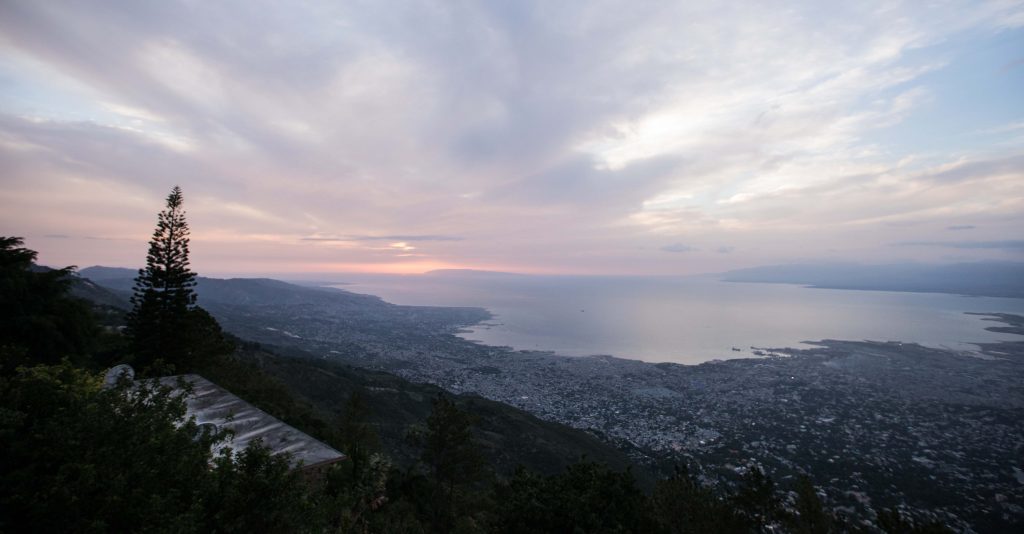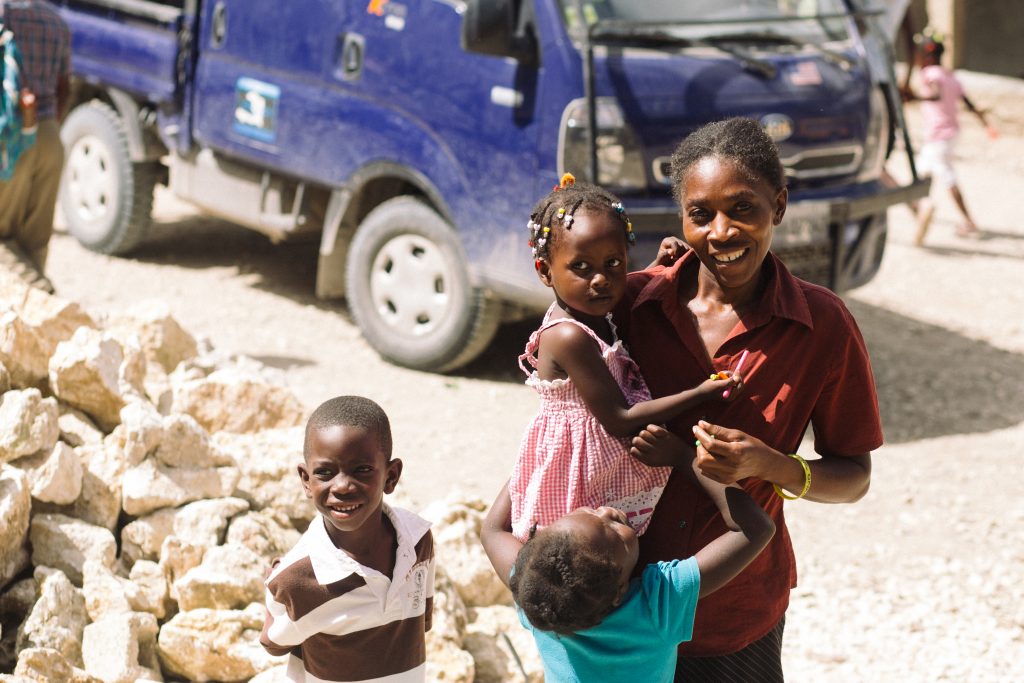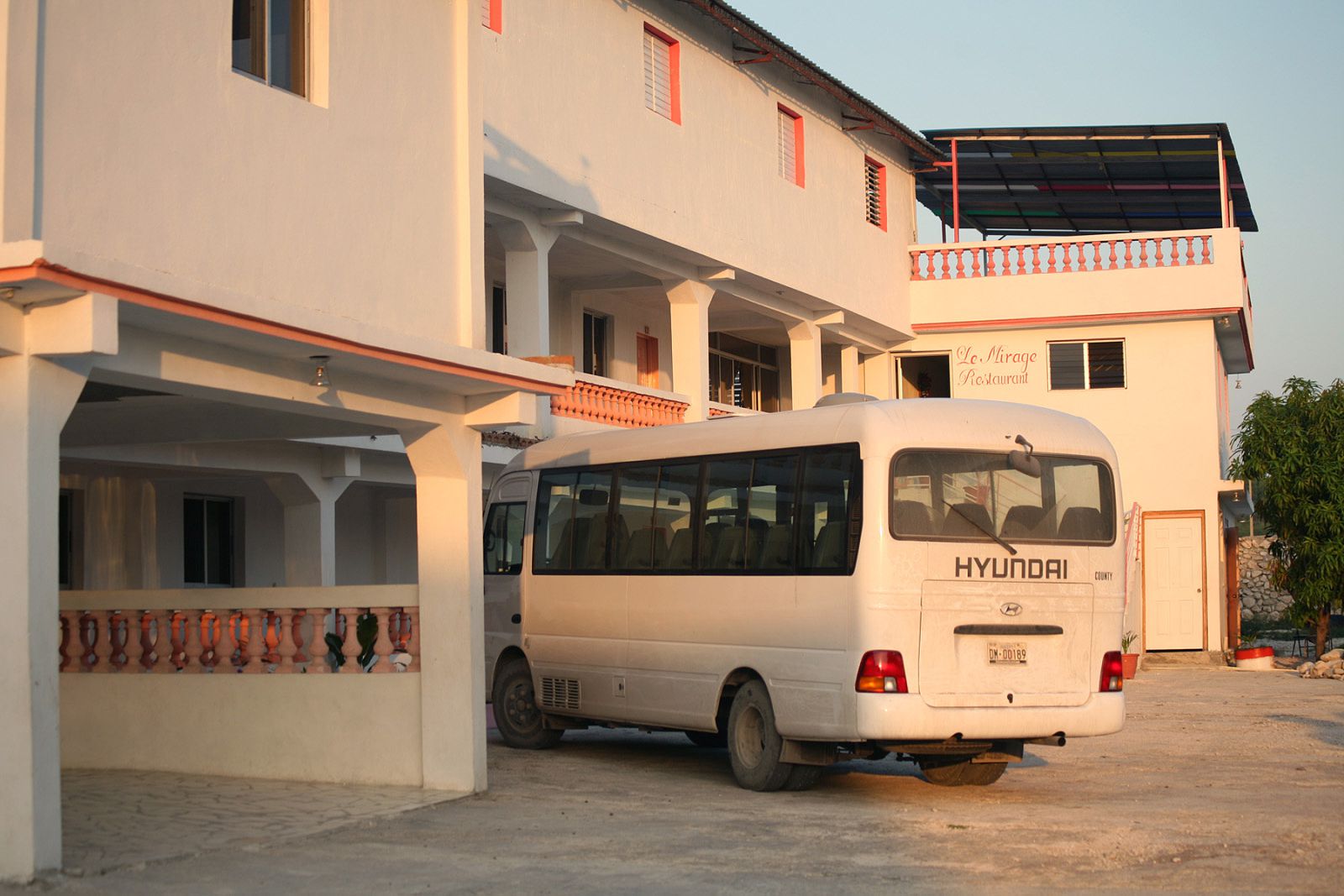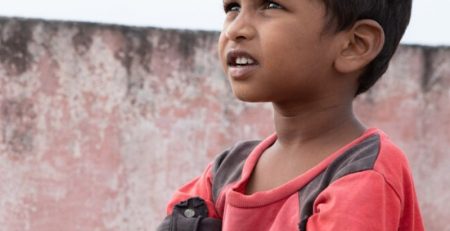L’operation Pays Lock: A global call for Haitian localism

Written by Joe Knittig, The Global Orphan Project CEO
We’re in the midst of “L’operation Pays Lock” – “Operation Lock Country” – in Haiti. Public protests are happening daily. Roads are blocked. Schools are closed. Businesses are dormant. Food and fuel are scarce. Human desperation is in the red. Demands for the president’s resignation are at a fevered pitch.
Negative critiques on how the country got to this point abound. You can google “Haiti” and read on this subject for days. I see no need to add to this pile.
Good luck finding positive affirmations on the tremendous good happening in the midst, or constructive dialogue about a Way Forward. That’s where I’d like to spend some time with you.
As you read, please resist the urge to dismiss what’s happening as a “Haiti thing.” This is a human thing. What’s happening in Haiti is happening in our own nation and all over the world in varying degrees. The biggest difference is that Haiti’s economic poverty has her naked, with her brokenness laid bare for all to see. And the iPhone cameras are rolling.
What is happening?
I wrote a blog on this subject last year during an uprising about a fuel crisis in Haiti. What’s happening now is a continuation of the same core condition, but with a perfect storm of symptoms hitting at once.
Usually a single symptom spikes hard in isolation. For example, fuel prices go up, disrupting day-to-day subsistence living. Flash protests pop. Isolated locations in the country, primarily in Port-au-Prince, shut down for a couple of days. The government makes some nominal move to temporarily ease the symptom’s severity, i.e., kicks the can down the road a bit. The people hate it. But they take it and cave. Why? Because practical family pressures kick-in. In Haiti (like in most places in the world), a wage earner has an unwritten duty to care for family, extended family, friends, and neighbors – to the extent possible. What’s mine is not only my own. This happens via relationships and local social obligation, not government compulsion. Since workers in Haiti get paid only for daily work performed, and since they support themselves and their extended dependents on meager pay, they cannot stay off work very long. Those who have the most power and resources can outlast the daily wage earners, and they do. The flash protests end with nominal band-aid moves from the most powerful, and the need of wage earners to get back to work to feed their children a little rice and beans.
This time is different.
A bunch of symptoms are spiking at the same time. There is a major corruption scandal playing out, with credible evidence that some government officials got their beaks into billions of dollars from a Venezuelan fuel subsidy program that was supposed to be used to improve the lives of the people. Amidst this in-your-face case of graft up high, here’s what’s hitting at the same time down low: fuel prices are up, food prices are up, inflation is up, unemployment is up, real wages are down, as the value of the Haitian gourde (their currency) is plummeting. People are locked in a ruthless vice of pressure. It’s a perfect storm.
The devaluation of the Haitian gourde is central to what’s happening in this crisis. Three years ago, the buying power of the Haitian gourde was in the 40s compared to $1 US dollar. A year ago, it was in the 60s. Today, it’s in the 80s. And dropping fast. If I’m one of the 3 in 10 citizens fortunate enough to be a wage earner carrying the burdens of my family and others, there’s a point where I’ll say, “screw it, it’s not worth it, this must change!” We’ve reached that point.
Add it all up, and we have a dysfunctional political and economic system at the top, and in the pressure below a core population of beautiful, valuable, courageous children, families, and communities desperate and crying out for relief and freedom. Lace into that pressure a few professional agitators and gangs eager to exploit the most vulnerable for their own personal power grabs, and we have “L’operation Pays Lock.”
Does the current crisis in Haiti affect our work with children and families?

Spiritually, no. Our hope is not in governments at the top of the world. Our hope is in the love and power of Jesus Christ, humbly manifested through the indigenous local church. That sacrificial love thrives in relationships amidst extreme pressure in low places. Always has. Always will.
Structurally, no. Our ministry approach is based on Localism. Localism is a dogged commitment to (a) move human solutions to human challenges as local as practicable, and (b) invest in community-based solutions that are as relational, incarnate, and locally empowering as possible.
In application, no. We partner with grassroots local churches to expand their capacity to care for local children and families in crisis, in their own communities, through their own leadership and culturally relevant ways. That’s our approach everywhere we serve, including Haiti. That’s how we channel your investments.
Because of this approach, in good times and tough, local Haitians own the care of their own children in their own communities. Through relational connection. As family. Nothing in this current crisis stops that. As an organization, we supplement. We do not supplant. As a result, when crisis hits, we’re not scrambling to airlift a big American staff out of the communities we serve, leaving a care and leadership vacuum. Amidst the national lock down in Haiti, our local church partners (the heroes whom we get to serve) are caring for children and families just the same as they were last week and will be next week.
Practically, yes. This crisis greatly increases the challenges of care. Just like the average family in Haiti is struggling to care for their children and put their children in school during this crisis, our local church partners are struggling just the same. We may need to take some extraordinary measures to strengthen their efforts in this time. And it will be our blessing to do so, God willing.
In candor, our local church partners all around the world face these insane challenges every day. You wouldn’t believe what our local church partners do to care for children in places like South Sudan! We simply don’t hear about their challenges – and daily triumphs – in the news.
If you google “Haiti News” right now you’ll see page after page of Big Voices spewing about corruption, dysfunction, and the need for change at the top. As if nothing good can happen unless it is through centralized government control. You’ll get discouraged. If you get close to local communities caring for kids – humble and heroic leaders whom you’ll never find in a google search – you’ll discover lots of encouraging local ecosystems full of hope, love, and change. Even now. Especially now.
It is in these spotlight moments when we hope influencers in our world, including governments, will more earnestly consider Localism as a wise structural approach to empowerment and change, though it is neither flashy nor fast.
Does the current crisis impact trips?

Yes, temporarily.
We constantly monitor what’s happening. When we have good reason to believe that the safety of a team could be compromised, and/or that we might face challenges with transportation beyond our control, we will work with that team to postpone the trip. We rarely have had to do so. However, in this current crisis, we are working with a few teams to postpone trips. To those teams, we appreciate your grace and understanding.
We hope to resume vision trips to Haiti soon, but have immediate trips on pause – for obvious reasons. If you have a trip on the books in the next 60 days, we will be contacting you to talk through the dynamics. All will be well.
Closing thoughts…
In unseen places, local churches all over the world are fighting in love to care for children and strengthen families. Their efforts are not showy. There’s no shock-and-awe. The work cannot be reduced to a 140 character “Wow!” tweet. They are engaging in the long, sustained, relational ground war of Localism, with an adopting heart. And it’s working. Spiritually, physically, educationally, and economically – communities are advancing. So many of you invest to keep the progress rolling, and you have had your own hearts and lives changed in the journey.
Be encouraged. As you read the news about how Big Change is needed in Haiti’s high places, know that the real and lasting work of Little Change continues to advance.
Please continue to pray for the people of Haiti. There is so much activity and noise and damage being done by mighty politicians on one side, and mighty gangs and thugs on the other. The vast majority of the population quietly struggles in their homes, scared and worried, hurting like never before. Pray for them; for their supernatural strength. Pray for divine intervention for the balkanized and loudest groups, battling it out for power at the top; that God will bring humility to hearts and wisdom to minds.
There is an old Haitian proverb: “Deye mon, gen mon.” Translated: “Beyond mountains, there are mountains.” The Haitian people are a loving, persevering, creative, gritty, enduring people. They will endure this crisis and keep going. So many Haitian brothers and sisters have invested so much in me. For that I will be forever grateful. And committed…
Gratefully yours,
Joe

